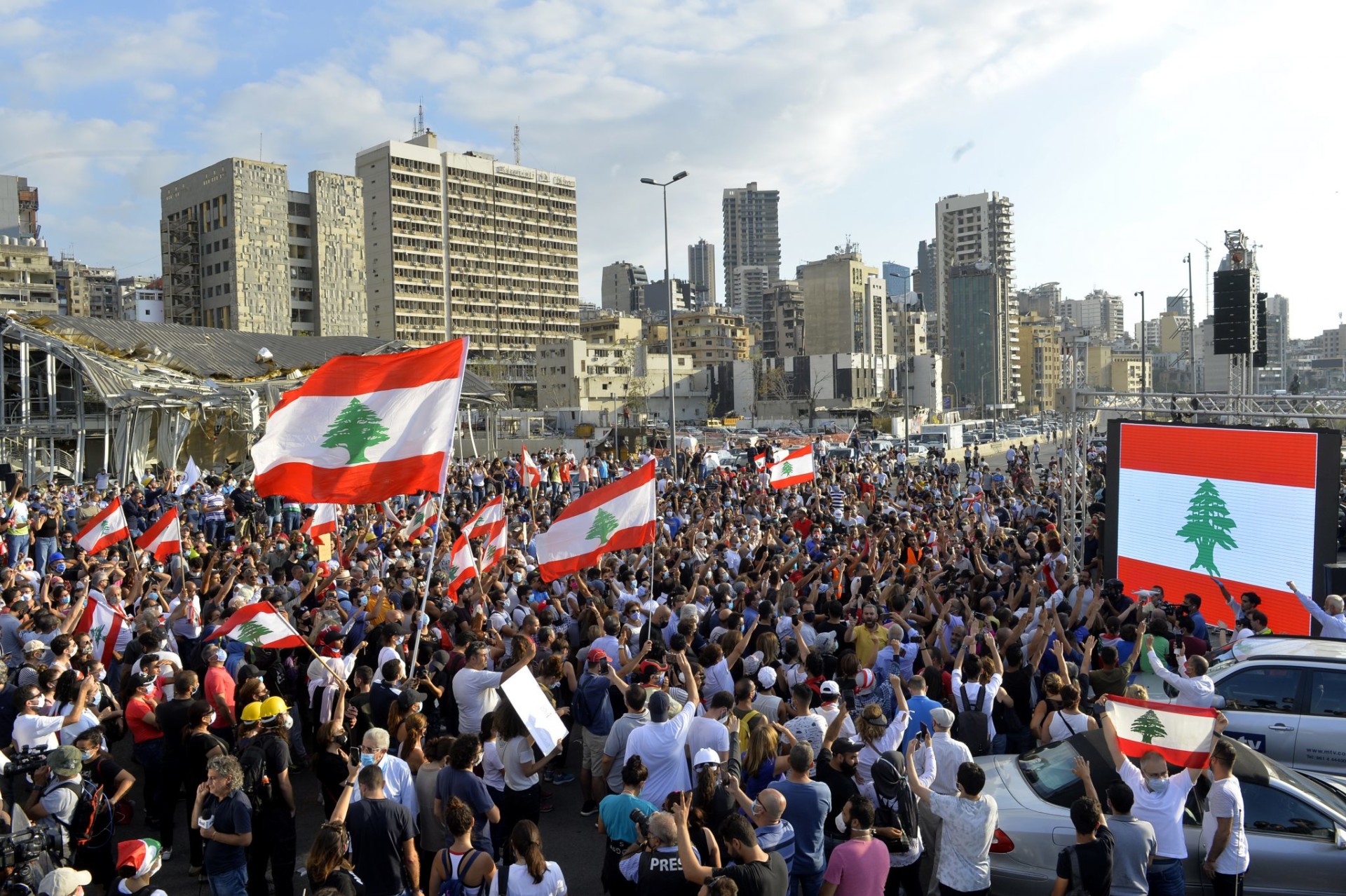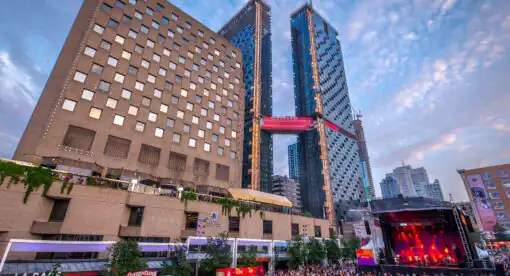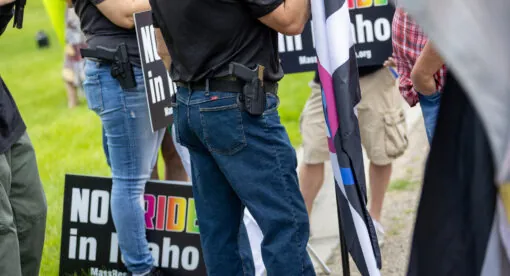Recent protests in Lebanon have shown a strong and widespread rejection of the status quo in the country’s politics. But if that is the case, why do voters in the country seem to keep electing the same political parties and leaders they think are corrupt and incompetent?
During French President Emmanuel Macron’s visit to Beirut in the wake of the devastating Aug. 4 explosion, a Lebanese journalist directed blame at Macron for meeting with people the journalist described as corrupt Lebanese political leaders. Macron’s reply was, “Don’t blame me for that; you voted for them.”
Macron’s apt observation raises a serious question that most Lebanese people evade. Voting ballots in Lebanese parliamentary elections are, barring a small number of exceptions, properly counted. Elections are relatively competitive, and the Lebanese media is free, diversified, and vocal. Moreover, Lebanese laws and practices place limited barriers to the establishment of new political parties. Lebanese democracy is not, then, a fake or semi-fake democracy, as is the case in countries like Syria, Iran, Egypt, or Russia. Yet in the latest parliamentary elections, held in 2018, only one seat out of 128 was won by an anti-establishment candidate.
So why do the Lebanese keep voting for leaders they say they want to get rid of? The answer lies not in the country’s electoral laws but in a mutual unwillingness for rival communities to make sacrifices in order to effect change.
Complex Politics
Two common explanations are normally offered for this phenomenon, but they are neither independently nor jointly satisfactory. One explanation blames the country’s electoral laws, which include the shape and size of electoral districts as well as the representational system. It is true that various Lebanese electoral laws implemented in the past two decades have been unsatisfactory. In many cases, these laws were designed to cater to the needs and interests of the ruling political class. Nonetheless, if a sizable majority of the Lebanese wanted change, these laws would not by themselves have thwarted such a wish. This is true regardless of the gerrymandering of electoral districts and regardless of whether one adopts a majoritarian or proportional representation system, both of which have been tried.
The other explanation often given for the inability of Lebanese democracy to deliver change is the system of strict sectarian quotas in the parliament. But this still does not explain why a majority of voters is unable to elect different political leaders and parties than the ones they vote for over and over. The allocation of seats to sects, and sectarian voting as such, should not prevent the majority in each sect from turning the tables on corrupt and inefficient leaders and replacing them with better alternatives from within the same sect.
Lebanese politics is hardly a straightforward affair, but despite its complexity, one can plausibly assert that had there been a majority in favor of political reforms, they would have materialized. The only possible explanation for the lack of change is the lack of a majority for it.
This lack does not imply that the Lebanese are not sincere in asserting their dissatisfaction with the ruling elite. To understand the predicament of the Lebanese, it is helpful to see them as people trapped in a kind of a Prisoner’s Dilemma where reasonable people cannot avoid making non-optimal choices. The dilemma for the Lebanese is that it is risky for them to abandon or weaken their current community leaders unless they are assured that members of other communities will do the same. Without such an assurance, the group that abandons its leaders when others do not will emerge as a loser.
Given the lack of unified opposition, voting for unestablished candidates is likely to scatter the votes on various competing alternatives. This scattering weakens the relative political power of the group in question unless the other groups also abandon their established leaders and also scatter their votes.
Missed Opportunities
In October 2019, people took to the streets demanding change in response to worsening economic conditions. The demonstrations evidenced a strong and widespread rejection of the status quo. They also provided an opportunity for rival communities to publicly signal to each other their readiness to turn the tables on their political leaders and thus provide mutual assurances to each other. Unfortunately, this opportunity was not taken up.
In particular, the Shiite community, which constitutes about a third of the Lebanese population, did not as a whole signal a willingness to abandon its political leaders. Although many Shiites joined the demonstrations, their overall participation was markedly less visible than that of other communities. Fewer and smaller demonstrations took place in Shiite-dominated areas than in Sunni and Christian ones.
There are two main reasons for the Shiites’ reluctance to fully join the demand for change. The first is their allegiance to Hezbollah leader Hassan Nasrallah. The second is the sense of empowerment Shiites enjoy as a group due to Hezbollah’s formidable military capabilities.
While most Shiites are willing to voice strong criticisms of some of their leaders, they refrain from expressing such attitudes toward Nasrallah. Even Nabih Berri, the leader of the other competing Shiite party, recognizes Nasrallah’s special status and has maintained an unbreakable alliance with him for the past two decades. The sanctity and immunity given to Nasrallah by the Shiites cannot be overlooked by the other communities and enters into their political calculus.
The fact that the Shiite community is unified behind an unquestionable leader puts them in a politically stronger position than all the other groups. This in turn makes it difficult for other communities to further weaken their political leadership when the Shiites show little sign of willingness to reciprocate. While the Lebanese strict sectarian quota system does not allow any sect to lose in the formal sense, the bargaining positions of the sectarian leaders can be considerably stronger or weaker depending on the degree of the sectarian solidarity they enjoy.
Although all stand to gain considerably from holding their current political leaders accountable, not all communities make equal sacrifices in order to reach this situation. In relative terms, the Shiites stand to lose more than others by changing the status quo. They would lose their unique military advantage and, with it, their political one. This remains true even though changing the status quo would improve the conditions of the Shiite in absolute terms, at least when seen from the perspective of alleviating the dire economic hardships that do not spare the Shiite community. Sadly and irrationally, however, relative advantages often have more psychological pull than absolute ones.
Dr. Bashshar Haydar is a Professor of Philosophy and the Mohammad Atallah Chair in Ethics at American University – Beirut.
The views expressed in this article are those of the author and not an official policy or position of the Newlines Institute.







